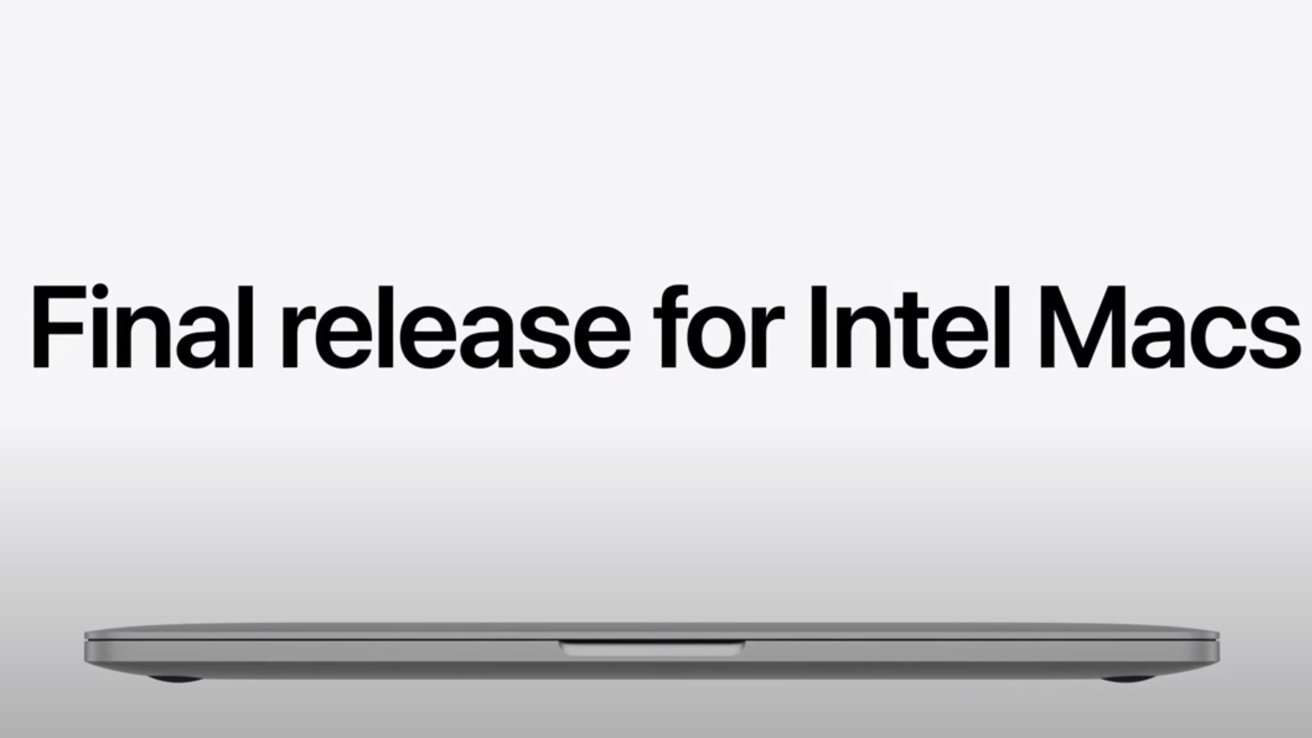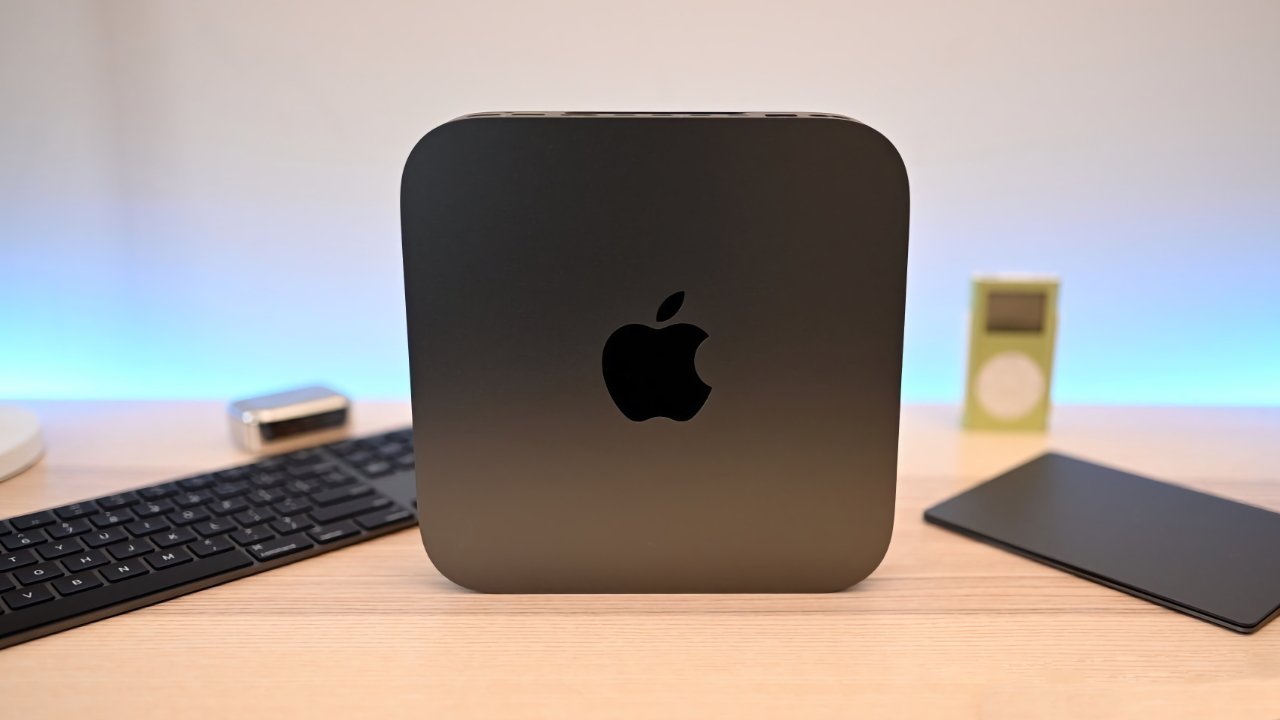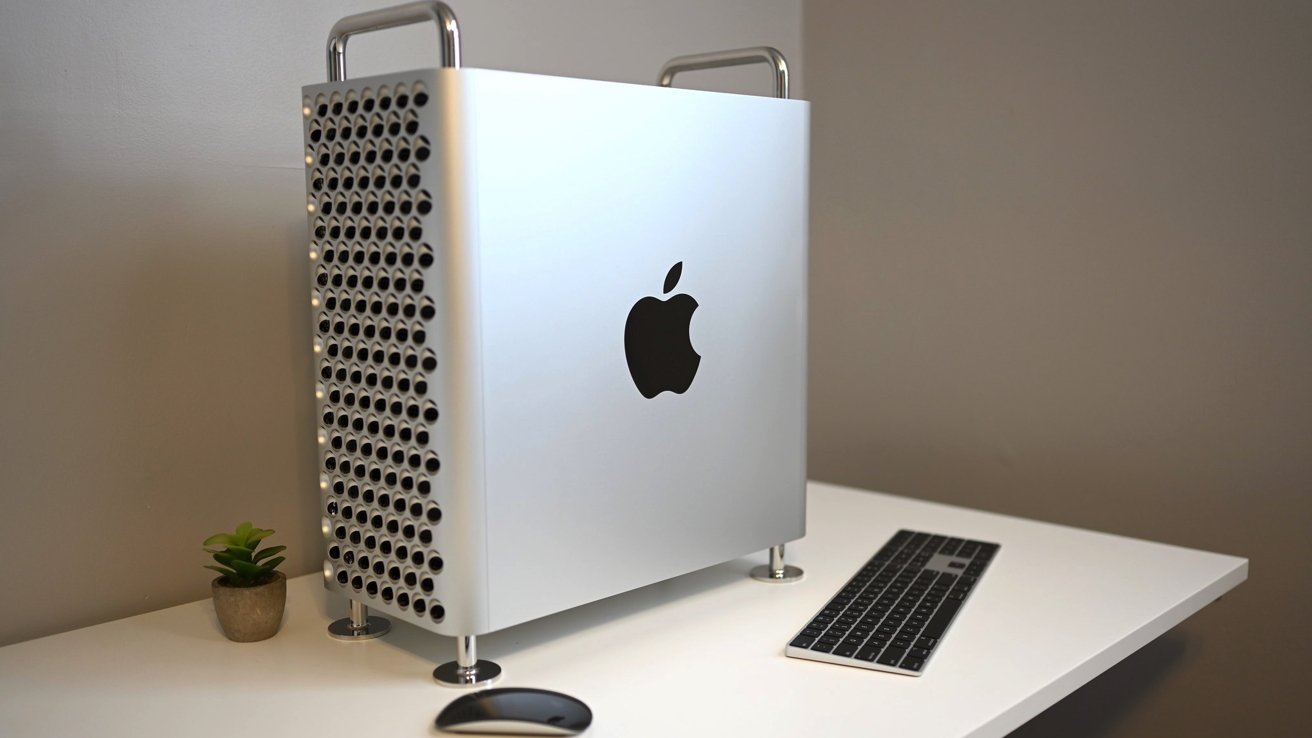OpenCore and Hackintosh are sadly dead after Apple ends Intel Mac support
Apple's decision to make macOS Tahoe the last version to support Intel Macs is going to cause enormous problems for OpenCore and Hackintosh users. The communities are taking the news quite well.

macOS Tahoe will be the last to support Intel Macs - Image Credit: Apple
Apple's operating system announcements during WWDC 2025 included macOS 26 Tahoe among the inbound fall updates. However, while the version number change and the move to Liquid Glass for the user interface were the main talking points, its support changes were also very important.
Confirmed as part of the WWDC Platforms State of the Union address, macOS Tahoe will be the final release to include support for Intel Macs. Apple's future macOS releases will be just for Apple Silicon Mac models, which it not so subtly hinted developers should finally switch over to if they hadn't already.
"Apple Silicon enables us all to achieve things that were previously unimaginable," Apple's video explained. "And it's time to put all of our focus and innovation there."
The announcement of the end of support wasn't entirely unexpected. The company has already moved away from selling Intel Macs in favor of an all-Apple Silicon lineup for some time.
With all Intel Mac mini models classed as obsolete or vintage back in April, it was a case of waiting for the other shoe to drop. It just happened to occur in June 2025.
For the last Intel Mac releases from 2020, there will still be full support in macOS until September 2026, when the next macOS version will get its full public release.
After that, security updates only. And even then, not necessarily all of the fixes that fully supported hardware gets.
Supporting the unsupported
The news obviously affects other users of older Macs. It hits those who use OpenCore or have hacked macOS onto generic Intel hardware hard too.
When Apple releases an operating system, if it deems hardware to be too old to run it properly to take it off the supported devices list, the installation will not proceed on that Mac. Without looking elsewhere for assistance, users would be stuck on the previous-generation operating system, unable to use the current macOS version.
For users who really want to use newer macOS versions on older hardware that doesn't officially support it, there is OpenCore as a workaround.

The 2018 Mac mini was the last in the range to use an Intel processor
(OCLP) uses the OpenCore bootloader to patch and enable compatibility with newer versions of macOS than a hardware typically supports. While new features may not necessarily work to Apple's standards on older hardware, necessitating the end of support, OpenCore overrides Apple's lockouts and allows the older hardware to run anyway.
This expands the usable lifespan of older Mac hardware, by letting it run newer macOS versions.
For OpenCore, Apple's elimination of Intel support for the next macOS version is not something that can simply be patched around. Apple won't be retaining any Intel-specific elements in its code base, meaning no x86_64 kernel nor binaries to fall back onto.
A patch in OpenCore wouldn't have anything to work with, and so would be pointless.
While OpenCore Legacy Patcher won't be able to help get future macOS versions running on Intel Macs, there's still some life in the project. It will still be able to help keep older Mac models alive and using later-than-intentioned macOS versions for the foreseeable future.
The fallout from members of the OCLP community seems to be measured, but disappointed. Many of the posts on Reddit about Apple's support pull explain clearly that the lack of future updates is because of a technological limitation that can't be worked around.
There are also reminders that OCLP probably won't migrate over to Apple Silicon, because of Apple's security that needs to be beaten. The T2 security chip is still interfering with some functionality of OCLP on Intel Macs, and Apple Silicon is a much tougher nut to crack.
A shift over to Linux is proposed by some as a possible way forward once support finally stops.
The non-Mac side
The other group that will be hit by the change of support will be Hackintosh users. Referring to computers that are not Macs but are made to be able to run macOS anyway, they too will cease to be able to run future releases beyond macOS Tahoe for hardware reasons.
Again, the expected removal of Intel-related features and code from the operating system will make it nigh impossible to get macOS to run on PC hardware.
The only vaguely plausible workaround would be to somehow emulate the Apple Silicon version to run on x86 architecture. At that point, you wouldn't be running macOS on bare metal, as you would be relying on introducing a level of abstraction that will impact performance.

The Mac Pro was Apple's last Intel-based Mac that it sold in 2023
Much like OCLP, Hackintosh projects won't be able to progress to future releases, and will find macOS Tahoe as the last real version of macOS that they will be able to run without too much trouble.
The community reaction is fairly similar to OCLP's, with Hackintosh Redditors resigned to it being the last hurrah for the Intel Mac. Posts mark the end of support, with some expressing that they want to enjoy support while it still exists.
As for macOS Tahoe, users have already worked out how to get it running on their Hackintosh setups, barely a week after the first beta's release. Users are still posting their successes in getting their Hackintosh working on the beta, or asking others for assistance, seemingly as normal.
While it's not quite the same level as the musicians playing as the Titanic sinks, there is still a sense of joviality within the space.
That feeling may change in a year's time when the support iceberg becomes a real problem. But for now, it's business almost as usual.
Hackintosh and OCLP will both be missed
A few staffers here, including one co-author of this piece, have done both Hackintosh and OCLP. In the case of Mike Wuerthele, he used his Mac Pro for his daily work, and built a home server around Core 2 Quad hardware in 2009. That lasted until about 2013.
Mike also kept that 3,1 Mac Pro that he was using for professional work while using the Hackintosh for service for far longer than its operational life suggested he should. Aspects of his home server were shifted to that Mac Pro when he went to MacBook Pro as a main machine in 2011, with other aspects jumping to a 2012 Mac mini in 2015.
When it fell out of vogue with Apple, he used what became OCLP to keep that Mac Pro up to date for a very long time. It served files and provided a Minecraft server to his friends for a long time.
Even for the Apple devout, of which which Mike certainly counts, Hackintosh and OCLP were at the very least fun projects. It feels very much like the end of an era, which we've spoken about before.
Apple Silicon is great. Keeping old hardware running for a long time remains a lot of fun.
The old hardware won't light on fire when support ends, of course. Intel Macs will be around for some time, stuck in a closet here, used in an exhibit there, doing industrial control over there.
What they wont be, is updated. It'll take about 10 years for the last of them to go effectively extinct, like Power PC did about 10 years ago.
But in the shorter term, Hackintosh and OCLP will be missed.
Read on AppleInsider

Comments
I completely concur. OpenCore is fantastic, I have many Intel Machines happily running Mac OS versions 5 Years+ newer than what they should officially support. It won't be long before Apple decides that the M1 series needs to be retired and I suspect that the clever people behind OpenCore will move their talents in that direction.
OpenCore kept my MP's going for nearly 12 years. We'll never see that again. It was perfectly long enough for apple to get their act together and the technology to mature to make a decent replacement. Apple saw where the puck was going and maybe jumped the shark, but here we are a decade later and tiny fan-less computers have matured, the devices tat support them and software have also.
I can't be more grateful to the OpenCore team, but new features demand new hardware eventually and frankly it just doesn't make any sense keeping older systems working. The only person I might feel bad for is someone who spent a bunch of money on an intel MP in 2022/ 23.
I cannot thank the Open Core guys enough for their amazing work over the years.